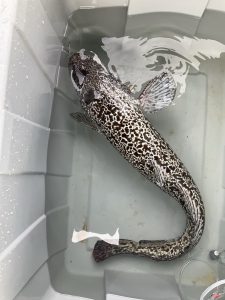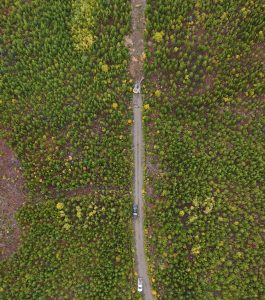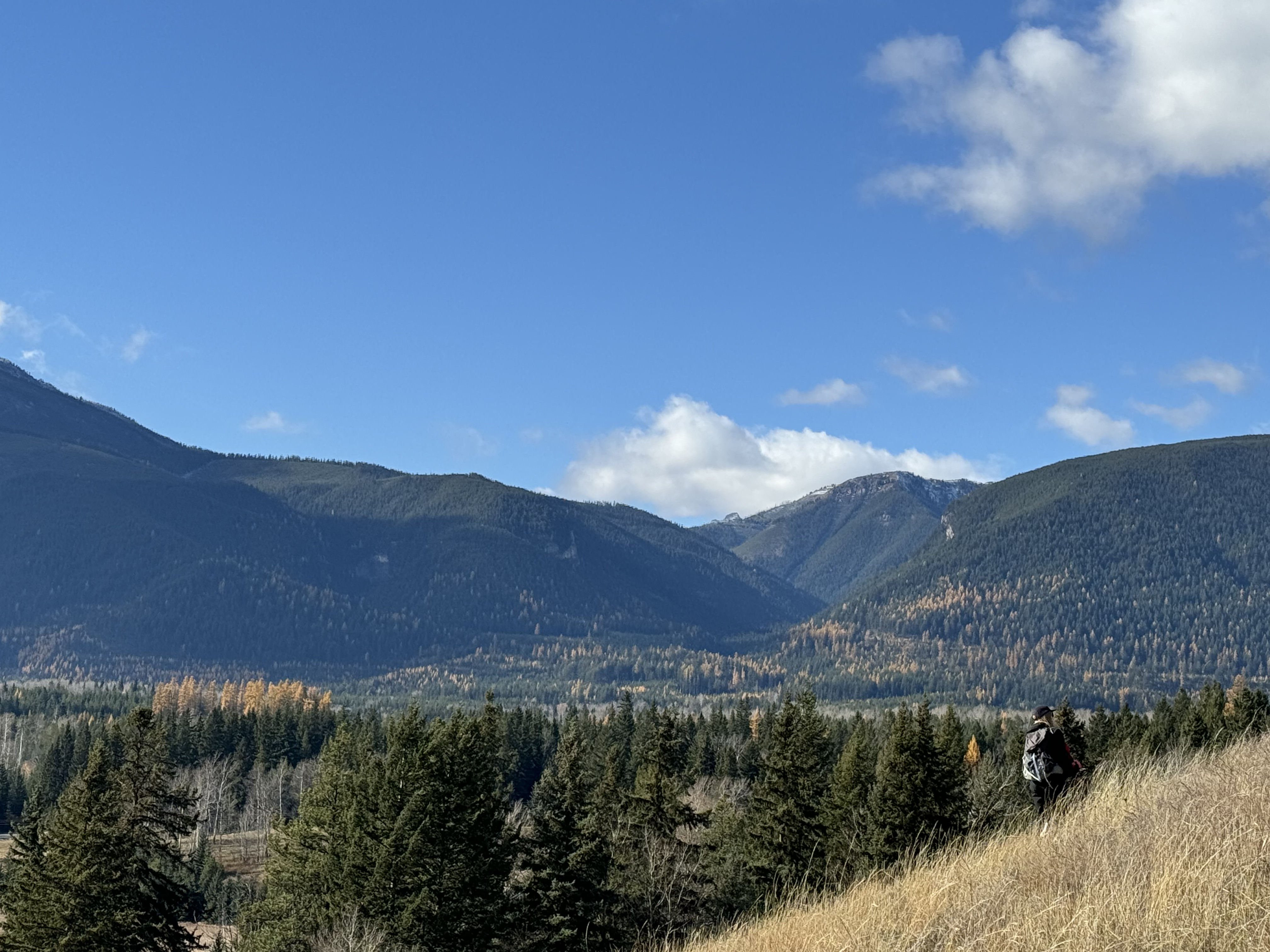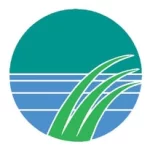HCTF would like to extend a huge thank you to the B.C. Conservation Officer Service for all their hard work and dedication to environmental prosecutions.
We are pleased to share that through the BCCOS’s efforts to direct funds to HCTF under creative sentencing, HCTF was able to allocate over $289,000 to 20 different conservation projects in 2024-25. This represents 29 different environmental infractions, ranging from $500 to $285,000.
HCTF always allocates court-awarded funding back to the region where the offence occurred. Our next consideration is to find a project match in that region that best fits with the infraction, while balancing the desire to invest funds back into projects quickly and efficiently. For example, if an infraction were related to hunting moose, we would invest funds back into a project benefiting moose or their habitat. If there are no direct matches in a given year, we will consider other wildlife projects in the region that may have secondary benefits to moose, or benefit ecosystems and biodiversity more broadly. This ensures HCTF can direct funds into fish, wildlife, and habitat efficiently and ensure high-value conservation outcomes are achieved.
When there is a restriction set by the courts, HCTF will often advertise the funding opportunity on our website to receive dedicated proposals that meet that need, such as fisheries work in a specific watershed.
Since its inception in 1981, HCTF has received over $6M in court-awarded revenue. We allocate an average of $293,000 to around 21 projects each year, from an average of 29 unique infractions.
Project Spotlights
Fisheries in the Kootenays

A Columbia Lake burbot, project 4-485. Photo by Heather Lamson, Province of B.C.
In January 2023, Teck Metals was ordered to pay $80,000 to HCTF for offences under the Fisheries Act and Environmental Management Act. The offence, which took place near Trail, B.C., involved introducing waste into the environment in and around the Columbia River, which had the potential to negatively impact fish habitat. The funding was restricted for the purposes of conservation or enhancement of fish or fish habitat in the Kootenay River or Columbia River watersheds, with a preference for projects in the lower Columbia region (south of Nelson, B.C.).
In 2024, HCTF directed these funds to two projects: $40,000 to Fisheries O&M in the Kootenays (4-64), which supports two West Kootenay kokanee spawning channels, and $40,000 to East Kootenay Burbot Population Assessments (4-685), which seeks to better understand burbot population limiters in the Upper Kootenay and Upper Columbia watersheds. Understanding current status, spawning locations, migrations, and genetic diversity will inform recovery actions of these declining populations.
Elk Valley
In an earlier sentencing, in 2017 Teck Coal was ordered to pay $285,000 to HCTF for three offences under the Environmental Management Act. The offences took place in 2012 near Sparwood and involved introducing sediment-laden water into the environment and failing to report a spill. While not restricted to a certain species or habitat type, it was preferred the funds go towards projects in the Elk Valley of B.C. Funding from this award, along with multiple other large infractions that were restricted to the Kootenays, was distributed over several years.
In 2024, the final $77,120 was allocated to two projects: $40,000 to Elk Valley West Bighorn Sheep Population Dynamics and Habitat Condition (4-611), which is identifying survival rates and causes of mortality of bighorn sheep to inform management decisions, and $37,120 to Upper Elk Valley Invasive Plant Management (4-618), which successfully reduced the spread of invasive species and enhanced biodiversity through targeted management strategies, ensuring high-quality forage remains for bighorn sheep and other ungulates.

Overhead view of road restoration, project 7-600. Photo by Society for Ecosystem Restoration in Northern BC.
Ungulates in the Northeast
A project in the Omineca-Peace region received funding from three separate court awards:
- In November 2020, an individual hunted a mule deer without a license, out of season, near Dawson Creek. They were ordered to pay $1,750 to HCTF in August 2022.
- In June 2020, an individual hunted wildlife not within season near Mackenzie. They were ordered to pay $8,000 to HCTF in November 2023.
- In August 2021, an individual failed to remove edible portions of a thinhorn sheep carcass while hunting near Muncho Lake. They were ordered to pay $1,900 to HCTF in December 2023.
While none of the court awards were restricted to either a region or for a specific purpose, HCTF felt funds would be best allocated to an ungulate project in northern B.C.
In 2024, these three court awards were allocated to project 7-600, Saik’uz Road Rehabilitation for Moose Habitat Enhancement. Building on previous successful work, this project rehabilitated an additional 14 km of roads in the Prince George area, reducing the road density to better support the moose population.
Fisheries in the Chilcotin
Between September and November 2017, a company diverted streams for agricultural purposes without permission, negatively impacting riparian and aquatic habitats. Charged under the Water Sustainability Act, the company was ordered to pay $49,000, and one of its directors an additional $9,500 to HCTF in January 2023. The funds were restricted to be used in the Chilcotin area of the Cariboo region, for projects involving fish and/or other aquatic assessments or habitat initiatives.
In 2024, the $58,000 funded two projects: Mid Fraser River Sturgeon Assessment (5-196) and Big Bar Slide Sturgeon Assessment (5-332). The former completed a 5-year study focused on filling knowledge gaps of white sturgeon habitat use and behaviour in the mid-Fraser, and the latter is evaluating white sturgeon movement patterns to inform fish passage structure design.
HCTF is honoured to be a trusted partner of the CO Service, working together to conserve BC’s fish, wildlife, and habitat.







